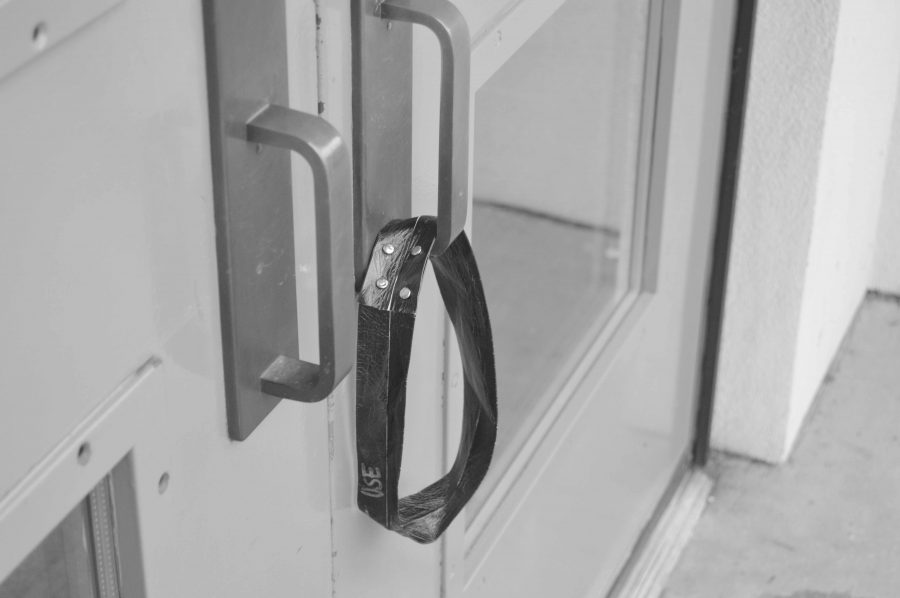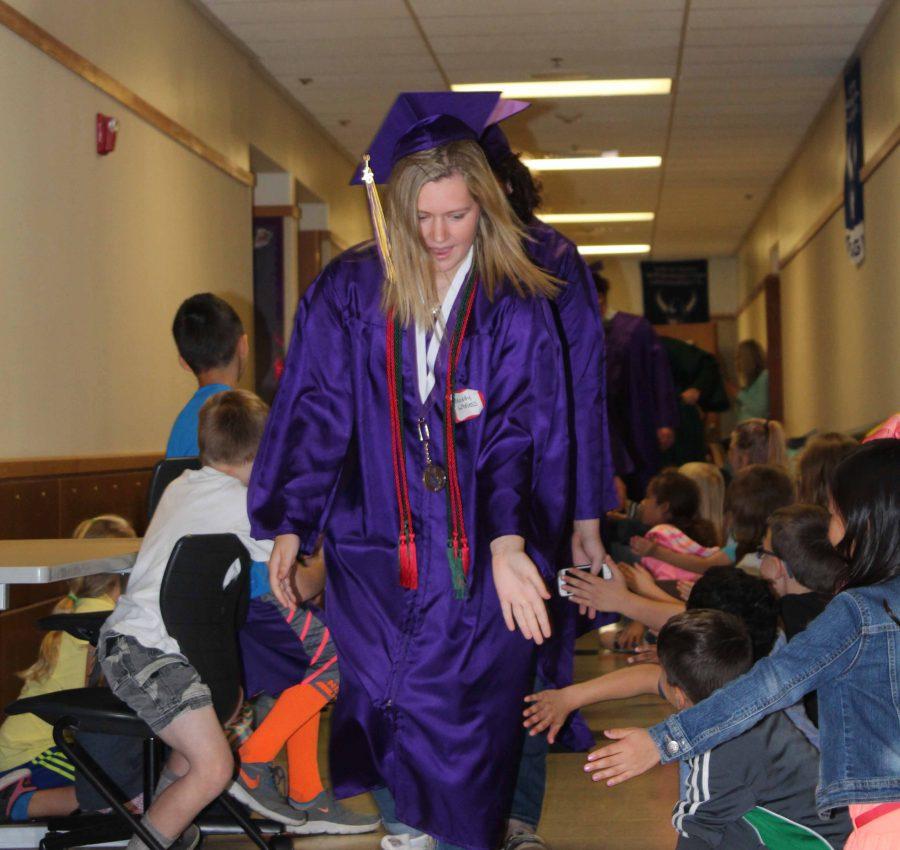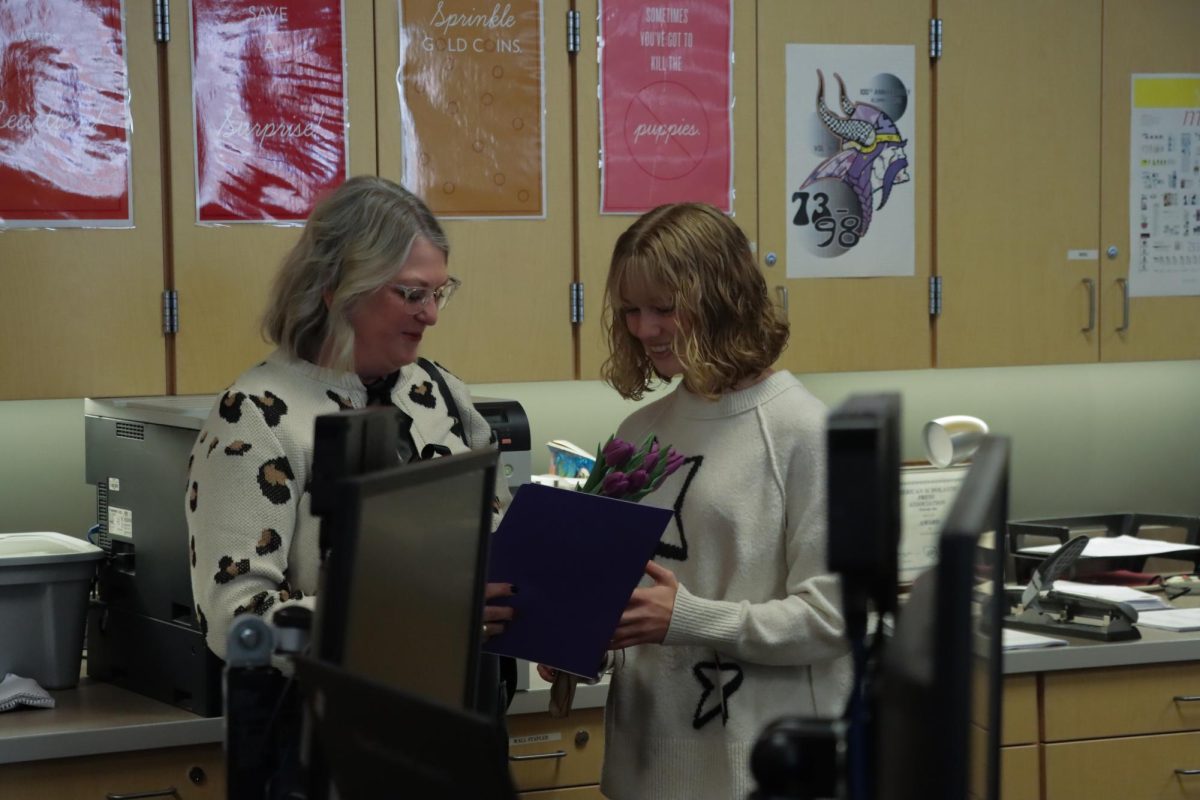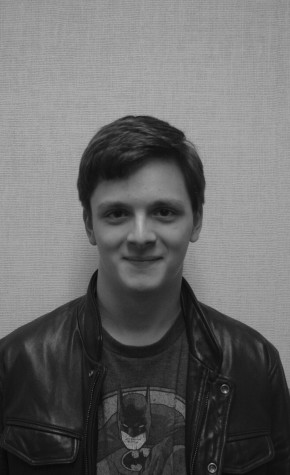It is often unlikely that a high school student would become a political delegate for a political party and yet one student at PHS has done just that.
Senior Joel Gage has become one of two Republican delegates for his precinct, although he is unable to continue to be a delegate as he will miss the next delegate convention.
Gage recalls his initial experience and reasoning behind attending the Republican caucus that was Feb. 20.
“I needed a civic observation for this quarter. I was also interested in seeing just who would show up to the Republican caucus and what it would be like. It was kind of stereotypical Republican. [There was a majority of] white people, older white people. They were all very friendly,” Gage said. “We started off with a prayer, which I thought was really stereotypically Republican. It was a really friendly environment. It felt like, since it was a district caucus, the people organizing it did not have a lot of political experience but they made the best of it, even though they were kind of disorganized.”
While Washington State is a primary state when it comes to elections, AP Government and Politics teacher Matt White explains the basics of how the Republican caucus works in Washington.
“They both have specific rules for what they are going to do and how they are going to work it. So the Republican caucus was Feb. 20, so the Republicans had their caucus and you show up by precinct. The Republicans divide you up and say, ‘here is your precinct, your location’ and so you show up by precinct and go into a little room and have a vote of who you are going to support,” White said.
Gage describes the process that made him become a delegate.
“Each district, regardless of how many people showed up (which was two in my case) needed to have a council secretary and a chairman. [The person I was with] actually asked me if I wanted to be chairman and I was like, ‘You have political experience, so you should take it.’ So he took it and I got secretary,” Gage said. “Then you move on to delegates and each district has a max of three delegates, meaning that if eight people show up to the district then they can only have three. If two people show up, you can only have two. Then you just do a voice vote at you table like, ‘Aye’ or ‘Yea’ or ‘Nay’ and that is how you get elected.”
With the election to being a delegate, there are some other responsibilities Gage would have to fulfill if he were to continue being a delegate.
“The delegate position means that you have a reserved spot at the county convention caucus, which I do not know where it is being hosted but I assume it is at a hotel convention center because they want you to pay $50 to attend. It was [going to be] a breakfast-lunch thing,” Gage said. “And you need to join the Republican Party, which I am not too big on that but the delegates basically show up to that and then they vote for county representative. That is their duty and then the county representative delegate goes to state and they do the same thing, then it goes to nationals and that is it.”
White described his classes’ reaction to Gage’s selection to be a delegate.
“We cheered. The whole class cheered. He was elected as a delegate—that is an important distinction. Sadly he will be going on a vacation and be unable to go onto the next level because he will not be in town for that. To be a delegate costs $20 and you have to join the party to be an official member,” White said. “To vote as a Republican, you do not have to pay $20 but to be a delegate you need to pay, plus the next level had a fundraising dinner that cost $50. So we would have immediately organized our Go Fund Me [page]. We were going to come up with money to then pay his $70 so that he could do it. Unfortunately he will not be going.”
Gage explains some of his worries regarding teachers knowing that he was elected to be a Republican delegate.
“Apparently, Mr. White has told a lot of teachers. I do not know how I feel about that because I know a lot of teachers who are liberal and I am not even a Republican, I just showed up to the caucus,” Gage said. “I am more moderate but I do not know how I feel about teachers knowing like, ‘Oh that kid is Republican delegate.’ I have heard some people talking or were making jokes about [making a] super PAC for Joel or something like that to raise money so that I could go to county caucus. I cannot attend because I have a vacation at the same time.”
Not all delegate election is done as easily as in Gage’s case, some of the delegate elections required the potential delegates to give speeches, according to Gage.
“As far as district caucusing goes, there was not a lot of people in my district so I did not have to make a speech or anything. There was like two to three tables that had five or six people show up. So obviously you have to sort out who is the better person to be a delegate,” Gage said. “So I assume you basically have to have a speech. It is not necessarily a personal speech of what you will do but it is more of, ‘I am going to support this candidate and I am not an idiot. If you want the delegate vote for this district to go to this candidate, then you should vote for me and I will apply my vote to the candidate.’”
White explains how Gage is somewhat of a rarity within his experience and why he believed that his classes wanted to support Gage.
“I have had friends of family and people who were delegates but they were middle-aged, two older people who have been in the party for decades, not an 18-year-old high school senior who showed up at a meeting to get some civic observation hours to get an assignment done for a class. That is unique and fun,” White said. “We wanted to see him as a young teenager at a national convention because we figured he would be the only youngish normal looking person at the Republican National Convention. We thought he would get actual TV coverage.”
Gage describes his reaction to all the support he had received.
“I was kind of surprised [by the student support]. I think that they were mostly doing it out of curiosity of like, ‘[wow] that guy got elected to an actual position.’ I do not think a lot of them were necessarily supporters of the Republican Party, neither am I really. I think they just thought it would be a cool opportunity to get someone in and have influence by donating or giving a dollar or something so they could have actual political influence. Maybe they just thought that would be cool,” Gage said.
While Gage cannot continue onto the next stage of caucuses he describes what the next stage would be like and what it was like to attend the local caucus in general.
“I cannot go to the caucus but… the district caucus seemed like they had no signs or anything. Obviously they were doing it with minimal funding, it was a hassle to actually get into the building because we could not find the building. Me and this other guy we were, walking around like, ‘where is the building?’ Because there were no signs,” Gage said.
Gage describes some of the people that he met while at the caucus.
“As far as the people that were there, they were really friendly and really cool. There was a guy from the former Soviet Union, he was very staunch capitalist that was interesting. He brought up a perspective, he made a joke that was like, ‘Do you want to make the cake or cut the cake?’ and some joke about capitalism and communism. The guy at my table was really pushing for me to be a hardcore Republican but I was just nodding my head a little because I am more moderate. Every one there was really nice.”






